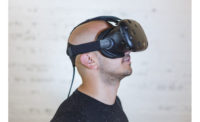The National Restaurant Association (NRA), Washington, D.C., released new research focusing on technology in the restaurant industry.
The study, "Mapping the Restaurant Technology Landscape," the NRA set out to explore current technology adoption in restaurants, plans for future adoption and restaurant operators' thoughts and opinions on restaurant technology overall.
"Restaurant operators and consumers generally agree on the benefits of technology use in restaurants, but they're also in agreement that while new technology is useful, it can complicate the restaurant experience," says Annika Stensson, director of research communications. "About four in five restaurant operators agree that technology can help make restaurants more productive, increase sales and provide a competitive advantage. However, half say it also makes the customer experience more complicated. This research highlights the importance that user-friendly, streamlined tech solutions play in creating an innovative restaurant environment and that closing this divide will be a priority for the industry going forward."
The survey found varying adoption rates among restaurant industry segments and ownership categories. For example:
Limited-service restaurants have a significantly higher adoption rate of customer-facing technologies that facilitate speed of service or ease access to off-premises options such as online ordering, smartphone apps and mobile payment.
Franchisees and chain-owned restaurant operations have implemented more technology overall.
Key findings include:
- 81% of restaurants use a point-of-sale or electronic register system.
- 68% of restaurants offer Wi-Fi for guests.
- 37% of restaurants offer online ordering.
- 32% of restaurants accept mobile payment.
- 53% of restaurant operators say they would implement predictive ordering technology if it were available.
- 37% of restaurant operators believe customer ordering is the most important area of technology development in the next five years.
- 32% of restaurant operators consider their operations to be lagging when it comes to technology use.
- 12% of operators consider their operations to be leading-edge.
"Operators say that costs in various forms remain the primary barrier to implementing more technology in their operations. Cost-effective solutions and strong arguments for ROI are going to make all the difference going forward, as operator interest in exploring the technology arena is clearly there," Stensson says.
The extensive survey of more than 500 restaurant operators was sponsored by American Express, New York.



